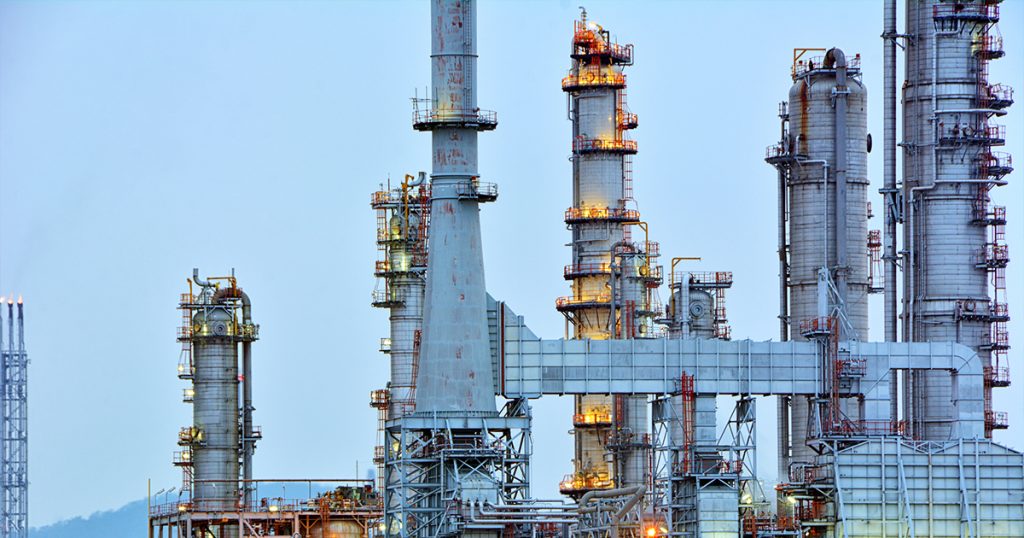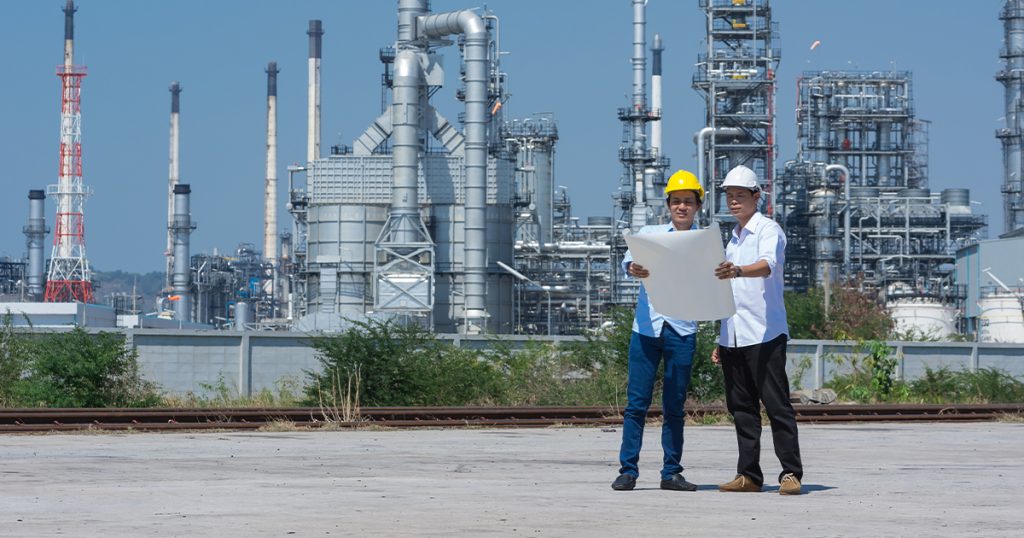In the rapidly expanding energy and manufacturing sectors of West Africa, Petrochemicals Erection Commissioning in Nigeria plays a defining role in determining how efficiently and safely plants transition from construction to full operation. The petrochemical industry involves complex mechanical, electrical, and control systems that must be integrated and tested precisely before production begins. Through proper erection and commissioning, each plant achieves peak reliability, operational consistency, and compliance with global safety standards.
The process not only prepares newly constructed facilities for startup but also validates every system-from rotary machinery to static units-to ensure seamless interaction across the plant. In essence, this stage transforms a constructed structure into a fully functional petrochemical plant capable of meeting high-performance expectations for years to come.

Understanding the Erection and Commissioning Phase
Erection and commissioning form the final and most critical phase in any industrial project. During erection, mechanical and electrical components are installed, aligned, and connected according to engineering designs. This includes mounting rotary equipment such as pumps, compressors, and turbines, as well as integrating static equipment like heat exchangers, pressure vessels, and piping systems.
Commissioning begins once erection is complete. It involves testing, calibration, and trial operation to ensure that all systems perform within design parameters. This phase includes verifying control logic, safety interlocks, and instrumentation loops. The end goal is to confirm that each subsystem works harmoniously before introducing process fluids and actual operational loads. Swamina International ensures that Petrochemicals Erection Commissioning in Nigeria follows rigorous industry standards for safe and efficient plant Operations.
Step-by-Step Process of Petrochemical Commissioning
- Mechanical Completion Verification
Each piece of equipment is inspected against engineering specifications to confirm proper installation and alignment. Mechanical completion certificates are issued once all systems meet the design and safety criteria. - Pre-Commissioning Activities
Before startup, pre-commissioning tasks such as cleaning, flushing, pressure testing, and electrical checks are performed. These steps remove debris, confirm pipeline integrity, and ensure that systems are ready for energization. - Instrumentation and Control Testing
Instrumentation calibration and loop checks are carried out to confirm accurate readings. Control panels and distributed control systems (DCS) are tested for response accuracy and alarm functionality. - Functional and Safety Tests
Safety interlocks, emergency shutdown systems, and alarms are tested to guarantee safe operation. Every protective mechanism must perform flawlessly before operational trials begin. - Operational Trials and Performance Testing
The plant is run under controlled conditions to verify output capacity, efficiency, and safety compliance. Any deviations or irregularities are corrected during this stage. - Final Documentation and Handover
Once all parameters meet performance criteria, the plant is formally handed over to the operating team with comprehensive documentation, including test records, calibration reports, and maintenance schedules.
The Role of Skilled Professionals
Erection and commissioning require coordinated teamwork between mechanical, electrical, civil, and instrumentation engineers. Skilled professionals ensure that design drawings translate accurately into real-world performance. Supervisors oversee safety, QA/QC inspectors validate standards, and operators receive hands-on training for process handling and troubleshooting.
Having trained experts is critical because every step involves precise alignment, correct torqueing, and real-time verification. Even minor misalignment in rotary shafts or incorrect pressure calibration can result in costly downtime or safety hazards.
Ensuring Plant Reliability and Safety
Safety remains the core principle during commissioning. Strict adherence to ASME, API, and ISO standards ensures that pressure systems, mechanical joints, and electrical circuits operate without risk. Equipment integrity checks, leak tests, and vibration monitoring reduce the probability of early equipment failure.
Petrochemicals Erection Commissioning services often include real-time performance analysis to optimize startup efficiency. By gathering operational data during the initial phase, engineers can fine-tune control loops, adjust process parameters, and identify potential bottlenecks before full-scale operation begins.
Advanced Testing for Petrochemical Equipment
Modern petrochemical commissioning integrates advanced diagnostic technologies such as ultrasonic testing, vibration analysis, and thermal imaging. These methods detect mechanical imbalances, electrical faults, and thermal inefficiencies early in the process.
Rotating machinery like compressors and pumps undergo balancing and alignment verification using laser tools. Pressure vessels are tested hydrostatically to validate strength, while heat exchangers are inspected for flow integrity and corrosion resistance. All of these ensure that the plant’s systems are structurally sound and perform optimally under operational stress.
Importance of Maintenance Planning
The transition from commissioning to maintenance planning is crucial for long-term success. This is where Petrochemicals Erection Commissioning maintenance becomes valuable. The same technical data gathered during commissioning helps design maintenance schedules that align with actual operational demands.
Maintenance planning ensures that lubrication intervals, inspection routines, and spare part inventories are established before the plant begins full production. It minimizes unplanned downtime and improves equipment longevity.
Role of Experienced Contractors
Large-scale petrochemical projects demand specialized contractors with proven expertise. Experienced Petrochemicals erection commissioning contractors manage multidisciplinary teams to ensure timely project execution. Their role extends from installation supervision to system integration, inspection, and safety audits.
An experienced Petrochemicals erection commissioning maintenance contractor not only ensures that the facility is ready for startup but also provides ongoing technical support. They help monitor operational performance, analyze equipment trends, and implement corrective actions to maintain uptime and efficiency.

Challenges in Petrochemical Commissioning
- Complex System Integration – Aligning hundreds of interconnected systems requires precision coordination among various engineering teams.
- Stringent Safety Regulations – Petrochemical plants handle flammable materials, making compliance with safety codes essential.
- Technical Skill Requirements – Commissioning demands highly specialized skills and experience across mechanical, electrical, and instrumentation disciplines.
- Environmental Considerations – Managing emissions, effluents, and waste during pre-commissioning is vital to meet sustainability goals.
- Tight Project Timelines – Delays in commissioning directly affect project profitability, making efficiency a top priority.
Documentation and Handover
A well-documented commissioning process ensures transparency and accountability. Every inspection report, calibration certificate, and performance test result is archived for future reference. This documentation supports maintenance teams and regulatory audits, ensuring the plant remains compliant throughout its operational lifespan.
At this stage, operator training also plays a significant role. Teams learn to manage process controls, emergency responses, and routine maintenance tasks to ensure smooth operations once the plant is fully online.
As part of this process, Petrochemicals Erection Commissioning in Nigeria integrates modern data management tools for digital tracking of commissioning progress, maintenance scheduling, and safety logs. This structured documentation builds a foundation for operational excellence and future plant expansions.
Benefits of a Proper Commissioning Process
- Operational Readiness: Ensures that the plant starts smoothly and performs as designed.
- Cost Efficiency: Prevents equipment failure and reduces repair costs through early detection of issues.
- Safety Assurance: Guarantees all safety systems are functional before introducing process materials.
- Performance Optimization: Enables fine-tuning of operational parameters for efficiency and output.
- Regulatory Compliance: Meets both local and international industrial safety and environmental standards.
Frequently Asked Questions (FAQs)
1. What is erection testing and commissioning of substation?
It refers to the process of installing, testing, and verifying all electrical systems in a substation to ensure they operate safely and meet design parameters before being energized.
2. What’s the difference between commissioning and testing?
Testing involves checking individual equipment or components, while commissioning ensures all systems work together as an integrated and functional unit.
3. What is the commissioning process?
It’s a systematic procedure involving inspection, testing, calibration, and trial operation to confirm that systems perform according to design and safety standards.
4. What is commissioning in maintenance?
Commissioning in maintenance involves validating equipment performance after repairs, replacements, or upgrades to confirm that the system operates safely and efficiently.
5. What are the three main types of commissioning?
They include pre-commissioning (pre-start-up activities), commissioning (functional testing), and post-commissioning (performance optimization and maintenance setup).
6. What are common commissioning problems?
Typical issues include misaligned machinery, instrument calibration errors, control loop instability, and incomplete documentation.
7. Why is commissioning and maintenance important?
Because proper commissioning and regular maintenance ensure that plant operations remain safe, efficient, and reliable- maximizing uptime and asset lifespan.
Building a Future-Ready Petrochemical Industry
Through expert planning, technical precision, and adherence to safety standards, Petrochemicals Erection Commissioning in Nigeria drives industrial reliability and sustainability. This process not only transforms complex installations into efficient production systems but also establishes long-term operational excellence.
Swamina International continues to deliver end-to-end commissioning solutions that combine engineering expertise with real-world execution, helping clients achieve seamless plant startups, reliable performance, and enduring success across the Nigerian petrochemical sector.
